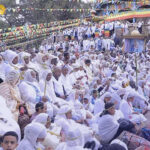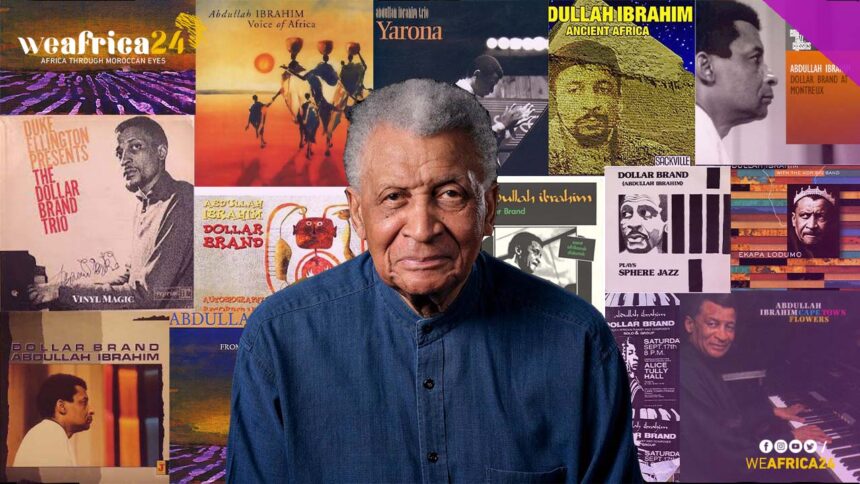Abdullah Ibrahim, formerly known as Dollar Brand, is a South African pianist, composer, and bandleader who is considered one of the most influential jazz musicians in Africa. Born in Cape Town, South Africa in 1934, Ibrahim began playing piano at a young age and was largely self-taught.
Duke Ellington, Thelonious Monk, Bud Powell, and traditional South African music influenced him.
Ibrahim played jazz with the Jazz Epistles, a South African group in the 1950s. The apartheid government banned the group’s album recorded in 1959, forcing the musicians to disband.
From Cape Town to the World: The Early Years of Abdullah Ibrahim
In the early 1960s, Ibrahim left South Africa for Europe, where he continued to play and record music. He lived in Switzerland and New York, recording with John Coltrane and Eric Dolphy.
Ibrahim heavily influenced his music throughout his career with the traditional music of South Africa, incorporating elements of Zulu and Xhosa music into his jazz compositions, ibrahim’s fans know him for his percussive and rhythmic playing style, as well as for his ability to improvise and create music that is both deeply soulful and highly technical.
Dollar Brand Becomes Abdullah Ibrahim: The Journey to Islam
Ibrahim was raised Christian, and exposed to Christian music, but later explored other religions including Buddhism and Islam. However, as a young man, he began to question his faith and began to explore other religions, including Buddhism and Islam.
Abdullah Ibrahim converted to Islam in the 1970s after meeting Muslim musicians in Switzerland. The religion’s emphasis on social justice and equality drew him, and he began to incorporate Islamic themes into his music.
The Enduring Legacy of Abdullah Ibrahim’s “Mannenberg”: A Unifying Force Against Apartheid
Ibrahim continued to record and perform music, including the iconic song “Mannenberg”, which became an anthem for resistance and a symbol of hope for those fighting against apartheid in South Africa.
The creators named “Mannenberg” after the Cape Town suburb where many black people were forcibly relocated under apartheid, and the simple melody and infectious rhythm of the song became a unifying force for the oppressed people of South Africa.
In the decades since, Ibrahim has continued to record and perform music, and has collaborated with musicians from around the world.
The South African government has given him many awards, such as the Order of Ikhamanga. He’s still an important jazz figure at age 88. His music reflects South Africa’s culture and politics.







